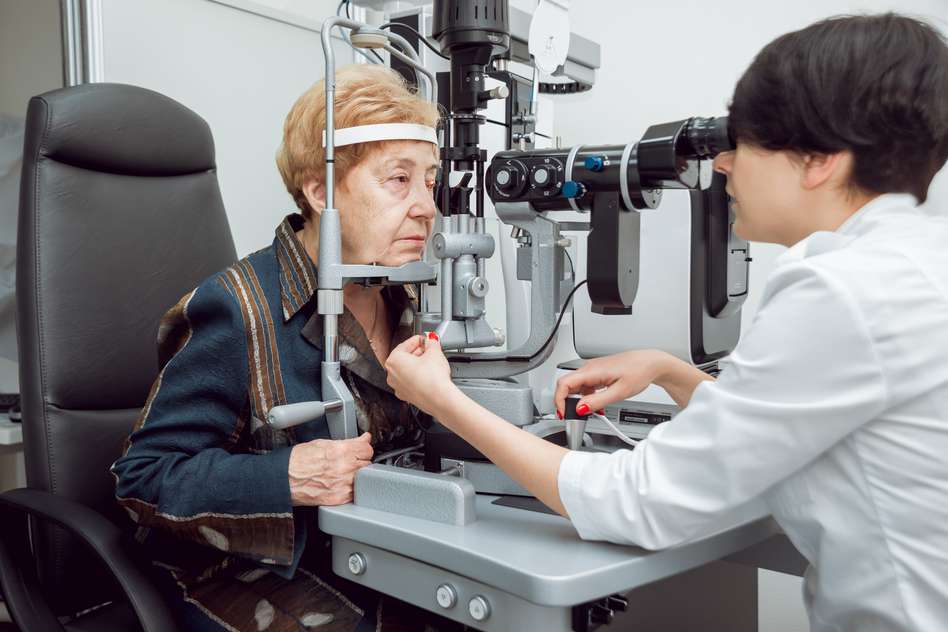medical negligence
Delay in diagnosis of Giant Cell Arteritis

Losing your sight, partially or wholly, can be extremely distressing. It can restrict your independence and mobility, and make it hard to earn a living. Depending on the level of sight loss, you may have to make big changes to your life, some of which can be very expensive.
- Giant Cell Arteritis (Temporal Arteritis) medical negligence claim
- What is Giant Cell Arteritis (Temporal Arteritis)?
- How does giant cell arteritis occur?
- What are the symptoms of giant cell arteritis?
- What causes giant cell arteritis?
- Detection and diagnosis of giant cell arteritis?
- What is the treatment for Giant Cell Arteritis?
- How long does treatment for giant cell arteritis last?
- What is the prognosis for giant cell arteritis?
- How we can help
Giant Cell Arteritis (Temporal Arteritis) medical negligence claim
If you suspect the damage to your vision has been caused by medical negligence, you need to take action within three years of the negligence to bring a claim. We have expert solicitors who can help you to take the next steps. With appropriate therapy, GCA is an eminently treatable, controllable, and often curable condition. However, left undiagnosed and untreated, Giant Cell Arteritis can cause serious problems including permanent loss of vision.
Sarah Stocker, a solicitor and specialist in GCA cases in the Medical Negligence team at Tees, takes a look at the causes and symptoms of this little known but not so rare condition.
What is Giant Cell Arteritis (Temporal Arteritis)?
Giant cell arteritis (GCA) is the most common form of vasculitis that occurs in adults. Almost all patients who develop giant cell arteritis are over the age of 50.
The term “giant cell arteritis” is used because when a biopsy of inflamed temporal arteries are examined under a microscope, one often sees large or “giant” cells.
How does giant cell arteritis occur?
Giant cell arteritis is where the arteries, particularly those at the side of the head (the temples), become inflamed. It's a serious condition that requires urgent treatment to prevent permanent sight loss.
What are the symptoms of giant cell arteritis?
The symptoms of temporal arteritis depend on which arteries are affected.
The main symptoms are:
- frequent, severe headaches
- pain and tenderness over the temples
- tenderness in the scalp, particularly when combing hair
- jaw pain while eating or talking
- vision problems, such as double vision or a loss of vision in 1 or both eyes
There are also more general symptoms that are common in GCA:
- fatigue, weakness and/or loss of appetite
- fever
- unintentional weight loss
- shoulder pain, hip pain, and stiffness
- Depression
Call for a FREE initial consultation on 0800 013 1165
What causes giant cell arteritis?
The causes of temporal arteritis are poorly understood. There is no well-established trigger or risk factors.
Detection and diagnosis of giant cell arteritis?
In a physical examination, a GP may look for scalp lesions, tenderness and a reduced pulse in the temporal arteries. They will then undertake some blood tests and make a referral to a specialist eye doctor (ophthalmologist) at hospital.
In an eye examination, the ophthalmologist will be able to identify the affected eye or eyes by examining whether the optic disc looks pale and puffy. If this is the case, temporal arteries may need to be reviewed with an ultrasound scan and then subsequently biopsied.
If you are already suffering visual problems, you should have a same-day appointment with an ophthalmologist at a hospital eye clinic.
What is the treatment for Giant Cell Arteritis?
GCA is most commonly treated with steroid medication, usually a drug called prednisolone.
Treatment is often started before the test results are received because of the high risk of visual loss.
How long does treatment for giant cell arteritis last?
Initial treatment is with an initial high dose of steroids (prednisolone) for a number of weeks to bring the symptoms under control.
Steroids are then continued on a reducing dose for a number of years. A minority may require a maintenance dose of steroids for the rest of their lives if symptoms cannot be kept under control.
If symptoms come back, you may need more treatment.
What is the prognosis for giant cell arteritis?
The outlook for those with giant cell arteritis is very good, unless the person has had a loss of vision. If that occurs, the damage generally cannot be reversed. Most complications associated with giant cell arteritis are from the use of steroid drugs, not from the condition itself.
How we can help
Our team of medical negligence specialists has the legal expertise to guide and support you.
When you come to us for help, we’ll listen carefully to your story and we’ll ask you what outcome you might want. Then we’ll use our knowledge and experience to look closely at the details of your case and give you clear, honest and realistic advice. We’ll explain your options in plain language and recommend a way forward.
Giant Cell Arteritis (Temporal Arteritis) - case studies
Mr C, in his 70s, attended his local GP surgery reporting that he was experiencing headaches. The patient had no previous history of headaches. Tablets were prescribed, however no review was planned.
One week later, Mr C was still suffering from severe headaches and eye pain. His GP was concerned he may be about to suffer a stroke, so he was advised to visit the hospital. He was seen in the A&E and underwent a CT scan. The scan was reported as normal and he was discharged.
Several weeks later Mr C contacted the GP surgery reporting ongoing severe headaches. He was prescribed pain relief.
Several weeks after this, Mr C felt particularly unwell. He visited the surgery again and was seen by another GP who diagnosed the issue as sinusitis and prescribed antibiotics, despite the fact that he was not suffering from any recognised symptoms of sinusitis. However, he continued to have a persistent headache that had been continuing for over a month and giant cell arteritis could not be excluded.
Mr C continued to suffer facial pain and a headache which was worse at night. His age, and the fact that this was a recent onset of headache with no previous history, should have been a red flag. Furthermore, Mr C was still experiencing classic symptoms of GCA including jaw pain and difficulty eating.
Again, there was an erroneous diagnosis of sinusitis.
At this point, Mr C noticed a deterioration in the vision in his right eye. Upon visiting the optician, he was advised to go straight to the hospital. Sadly, by the time Mr C was seen at the hospital, he had permanently lost the vision in his right eye.
Allegations were made against multiple GPs at the practice. It was alleged that the GPs were negligent in failing to suspect GCA and arrange for the patient to receive the correct treatment regimen. Had GCA been correctly diagnosed and Mr C treated with high dose steroid therapy within the six month period that he suffered symptoms, he would probably not have suffered irreversible blindness in his right eye.
Mr C retained all of the vision in his left eye and was still able to drive and carry out the majority of his day-to-day activities unaided.
Tees successfully settled the case and Mr C was awarded a sum of £45,000 in compensation plus his legal costs.
************
Mrs A, in her late 70s, visited her GP with a headache at the temporal area and behind the eye and was referred to her local hospital with suspected GCA. Blood tests given were found to be within normal limits, so she was discharged back to the care of her GP. At this stage there were no visual symptoms.
Mrs A was given pain medication to manage her symptoms, which temporarily resolved the headaches.
Several months later, Mrs A visited her GP with a frontal headache and left sided jaw and neck pain: since the hospital had previously excluded GCA, it was felt that the issue could be musculoskeletal and so Mrs A was referred for physiotherapy. However, the physiotherapy was found to be ineffective and the headaches and accompanying jaw ache became more so much so that Mrs A found it difficult to eat.
Mrs A sought an emergency appointment and returned to her GP. The GP referred her to A&E to exclude GCA. The working diagnosis was GCA and Mrs A was admitted for treatment and started on steroids, however the dose was lowered meaning it would not successfully treat Mrs A’s GCA. During Mrs A’s time in hospital, she reported blurred and double vision and felt that her visual symptoms were progressively getting worse. Mrs A was discharged from hospital six days later, despite still suffering from severe headaches behind the eyes and unexplained visual symptoms, and was advised to take codeine and paracetamol in addition to the low dose steroids.
A few days later, Mrs A suffered episodes of complete visual loss in one eye but was refused an examination at the hospital eye clinic due to the previous normal scans and was instead advised to visit the optician. The optician strongly suspected GCA due to Mrs A showing ‘classic symptoms’.
A temporal artery biopsy was performed at hospital on an outpatient basis, the results of which confirmed active GCA but she was not told of the results. Mrs A subsequently re-attended hospital due to further deteriorations in her vision. She was advised that she would be started on a treatment of high dose IV Methylprednisolone. However, it was too late and the treatment was not effective.
Mrs A’s sight continued to worsen and upon examination several days later, she was advised by an Ophthalmologist that there had been inflammation of the arteries that had prevented blood flow to the vessels behind the eyes and starved them of oxygen and that my sight loss would be irreversible.
A failure to provide the correct dose of medication and subsequently recall Mrs A for further treatment when deteriorations were reported ultimately resulted in Mrs A permanently losing her sight in both eyes. She is now dependent on others for her care.
Tees successfully argued that had the hospital followed their own protocols for the management and treatment of GCA, Mrs A would have avoided all or some of her sight loss.
The hospital admitted liability and has since made Mrs A an interim payment of compensation to meet her immediate needs. Final damages are still to be determined.
Tees is here to help
We have many specialist lawyers who are based in:
Cambridgeshire: Cambridge
Essex: Brentwood, Chelmsford, and Saffron Walden
Hertfordshire: Bishop's Stortford and Royston
But we can help you wherever you are in England and Wales.
Chat to the Author, Sarah Stocker
Associate, Medical Negligence, Cambridge office
Meet Sarah
- Areas of expertise
- Accreditations
- Testimonials
Mr E
Cambridge
'I was extremely satisfied with the overall professionalism of the people I dealt with, particularly of Sarah Stocker, who acted as my usual contact. I needed personal and empathetic handling of my case and that is exactly what I received'
Georgia Rebane
Peterborough
'Sarah really went the extra mile to help me try to understand the legal process. I've never been through anything like this before, so was very grateful to have someone as caring as Sarah to help get a fair outcome'
Mrs V
Chelmsford
'Sarah Stocker explained my medical negligence case, and the likely outcome, very clearly. She kept me fully informed throughout the process and was extremely compassionate and professional. My claim was successfully settled and I'm extremely grateful for the help Sarah gave me and my family'
Barry Skingley
Saffron Walden
'I would recommend Sarah Stocker to anyone who has a similar claim. I could not fault any part of my negligence claim. It was carried out professionally and in a sympathetic way. Throughout the process I was kept informed at every stage. The financial settlement was well above my expectations'
Mrs. C
Bishop's Stortford
'Sarah Stocker’s input into my case was of the highest standard. She was supportive, caring and empathetic. She informed me of details of my and case and gave me feedback as soon as she got it. There was always good communication, Sarah would spend time in phone calls explaining the process. She would always follow up with hard copies on how my case was progressing and she accessed excellent expert reports from the medical profession. Sarah gave very good advice, support and guidance'
Mrs. C
Dunmow
Sarah Stocker explained my medical negligence case, and the likely outcome, very clearly. She kept me fully informed throughout the process and was extremely compassionate and professional. My claim was successfully settled and I'm extremely grateful for the help Sarah gave me and my family.



